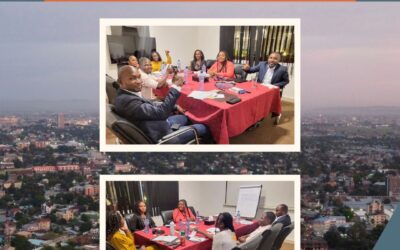Economic freedom is vital for trafficking survivors. If a person liberated from slavery cannot earn a living, they are vulnerable to becoming enslaved again. That’s why Free the Slaves and our front-line partner organizations help provide skills training and microenterprise support for slavery survivors and their families.
You can see this strategy in action in the latest film from our Face to Face with Slavery Series: The Economics of Freedom. It’s set in the town of Rubaya in the Democratic Republic of the Congo.
The film shows how Salomon made a successful transition from mining slave to barber, and how Espérance was able to retrieve her children from mining slavery by starting her own successful business.
The “revenue generating activities” approach helps people regain control of their destiny. It’s the key to sustainable freedom.
“This activity helps to economically reintegrate the modern-day slavery survivors,” says Bènoit Kikwaya of our front-line partner group ASSODIP. “We want to see everyone support themselves.”
Learn more about our project in the DRC on our Congo webpage.
See other installments of our Face to Face with slavery series on our video page. Next stop for the filmmakers: Ghana.

